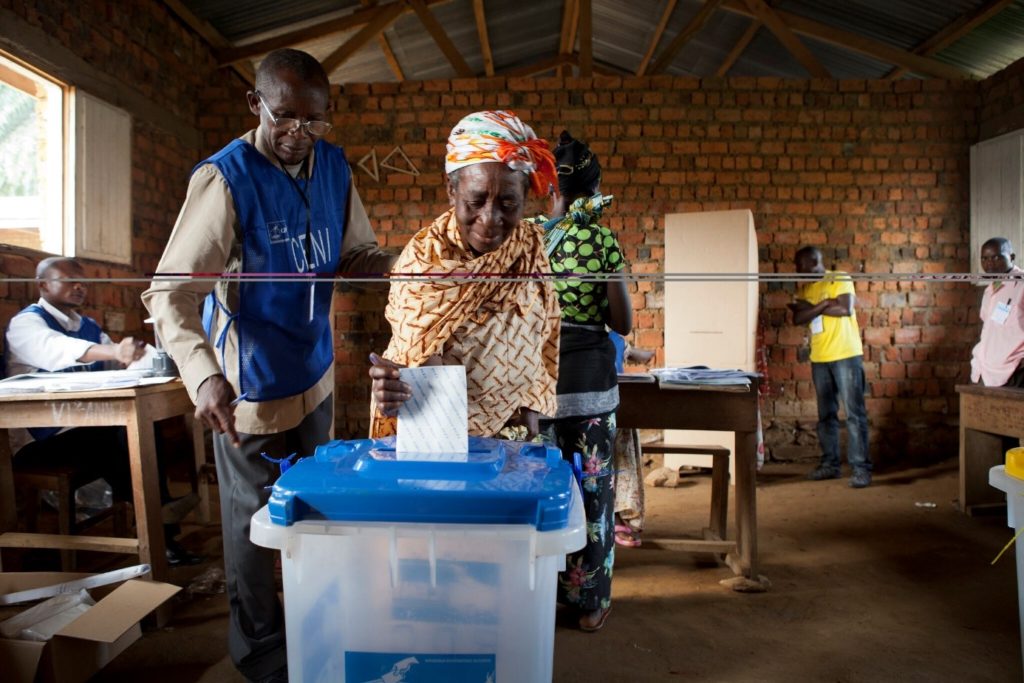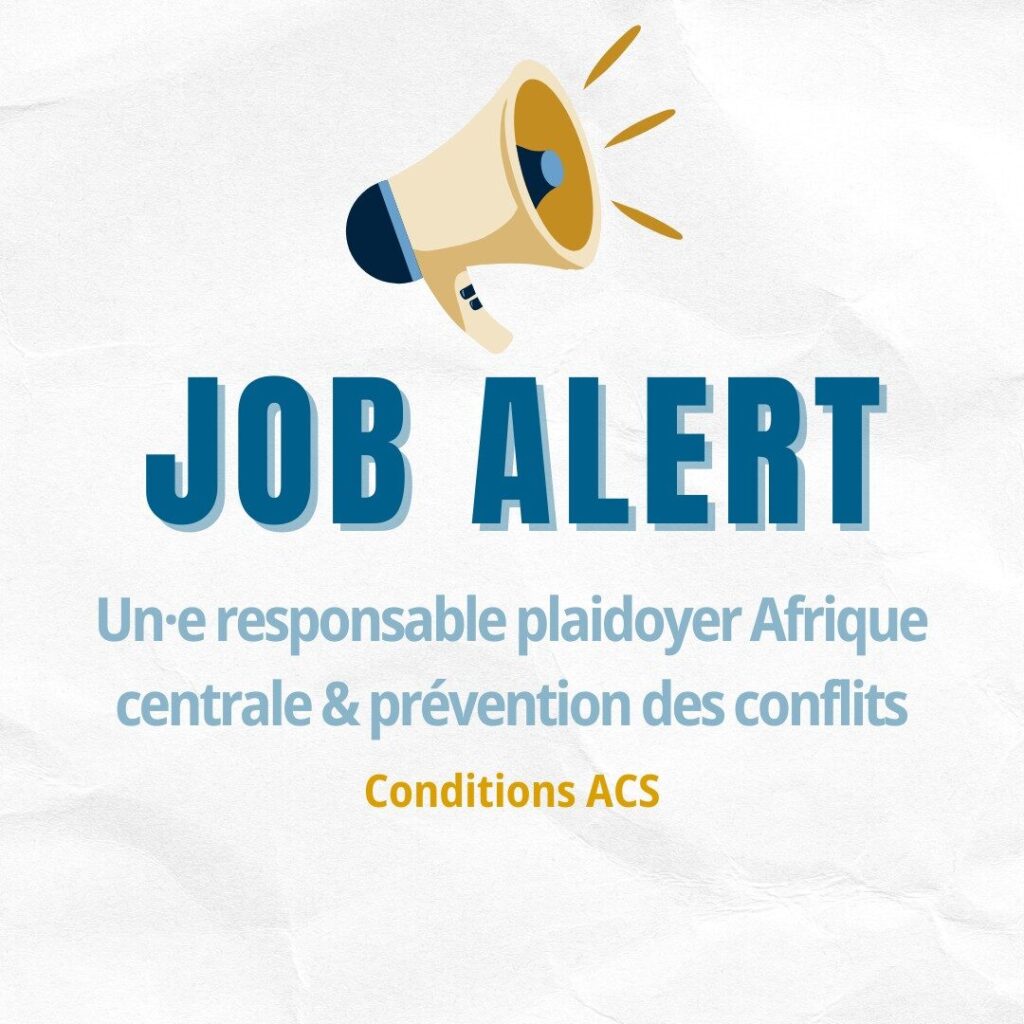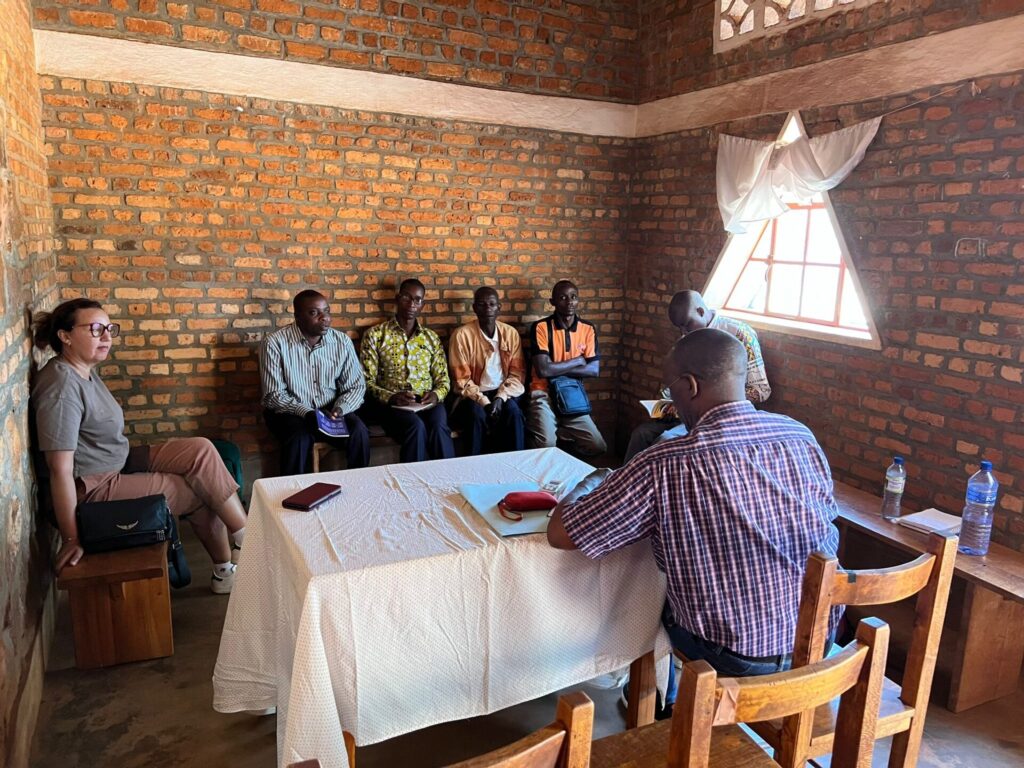One year before the Congolese elections, this analysis offers you a glance at the challenges to be taken up by the institutions and civil society organizations of the DR Congo so that the country commits towards greater transparency and inclusiveness. and appeasement for these 2023 elections.

The young democracy that is the Democratic Republic of Congo is preparing for its fourth electoral cycle. On November 26, the Independent National Electoral Commission, the Ceni, announced the date of the next elections. Its electoral calendar tells us that the elections will take place on Wednesday December 20, 2023 and that voter registration will begin on December 24, 2022. Even if the release of the electoral calendar is a relief in terms of meeting constitutional deadlines, the electoral process will face many challenges.
These were addressed as part of a seminar in Brussels, organized by Belgian Foreign Affairs, the British Embassy and the Egmont Palace, on December 2. Several Congolese, Belgian and international speakers, such as Denis Kadima, the president of the Ceni, returned to the technical and organizational challenges as well as the stakes of this election. On the occasion, Justice & Peace accompanied Mgr Donatien Nshole, secretary general of CENCO[1] who spoke during this presentation.
Technical and organizational challenges
Published less than a month ago, electoral calendar revolves around the constitution of the electoral register[2], the operation of receiving and processing applications for direct and indirect ballots[3], the organization of these ballots as well as activities to sustain the electoral process[4]. Unfortunately, several significant challenges face this upcoming electoral process: temporal, logistical, legal, health challenges, and last but not least, security challenges threatening the holding of elections in Eastern DRC.
The temporal challenge has been taken up, and even criticized by certain experts and members of civil society. For a population exceeding 90 million inhabitants, there are only three months planned for the identification and registration of voters from all provinces and regions. five foreign countries participating in the vote. Congolese people living in South Africa, Belgium, France, Canada and the USA will therefore be able to vote in December 2023. The Ceni sees this step as a pilot project which could be extended to other countries for the 2028 elections. However, this provision is provided for by the constitution and is also justified by the large Congolese diasporas living in these countries.
Then, the logistical challenges mainly relate to the registration of voters displaced due to the security situation in North Kivu. Furthermore, the deployment of temporary staff and voting equipment will also be complicated by conflicts, which was confirmed by several speakers at the seminar. To identify voters, the Ceni bases itself on the 2018 registration and on the goodwill of citizens to register in their registration center. Furthermore, a application for smartphone was ordered by the Ceni so that citizens can register for elections without traveling. But, for a country in which part of the population has access to neither the internet nor a telephone, it is clear that this application will not allow more inclusive and rapid enrollment. But the biggest problem remains the fact that the DRC does not have complete national registers, exhaustively identifying all people born and living in Congo. In addition, the semi-electronic voting planned by the Ceni does not convince everyone. The independent electoral expert, Gérold Gérard explained that the latter is not legally regulated and exposed the risk of multiplying black boxes surrounding the results and their transmission.
The weather and the rainy season will also complicate the participation of certain citizens living in remote and difficult to access regions, as evidenced by the floods last November. In addition, health conditions, relating to the spread of certain viruses such as Covid-19 or cholera could also prevent the participation of certain people.
Security challenges
Finally, it is essential to return to the security situation in the East of the country, which raises fears of a cancellation of elections in regions under the yoke of armed violence. Reading the press in recent months, a multitude of armed groups, including the M23, are sowing terror and causing numerous population displacements in North Kivu. The M23 would like to control the city of Goma, a strategic crossroads on the Rwandan border and close to Uganda, and has, with this objective, launched several offensives on the cities of Rutshuru, Nyiragongo, Kibumba and Masisi to encircle the city of Goma. The Congolese national army is trying to stop the insurgents and has received military support from the East African Community (EAC). In addition, the resurgence of the M23 is causing new diplomatic tensions with the power in Kigali, which the Congolese government accuses of supporting the M23.
For this reason and with the aim of putting an end to the violence, talks were initiated in Nairobi under the leadership of former Kenyan President, Uruhu Kenyatta, representing the EAC. The Congolese and Rwandan governments and several armed groups sat around the table to achieve a ceasefire at the end of November. THE M23 was not invited to participate in the negotiations, and feeling wronged, he did not leave the territories he had occupied for several weeks.
Already during the 2018 presidential election, the populations of Butembo, Beni and Yumbi were unable to vote for health and security reasons, which caused strong protests. protests in the cities concerned and on the side of Martin's opposition Fayulu. Despite the current security instability, the government of Tshisekedi declared that he would not want to lead to a slippage in the elections. Therefore, for the elections to take place in December 2023 in an inclusive and peaceful manner, it is essential that the government and the CENI take their responsibilities. On the one hand, the government must guarantee the territorial and sovereign integrity of the country, and must imperatively find a solution to put an end to conflicts and violence against civilian populations. On the other hand, the CENI must ensure a transparent and inclusive electoral process, thanks to identical and credible identification, registration and ballots in all regions of Congo.
The trust deficit within the population
Apart from the challenges clearly attached to the electoral calendar, the population's confidence in the promises made for these elections is at its lowest. Indeed, this deficit of trust represents a major challenge for the CENI, which has been and remains criticized for its lack of transparency. To raise awareness and regain the trust of the population, the Ceni must be more transparent and publish reports of its work[5]. This approach must also be supported by strengthening inclusion and improving electoral observation. Finally, abstention in Congo is often very significant and can only be resolved in 2023 thanks to strong awareness of the population, which must be done by the Ceni, political and religious institutions as well as by societal organizations. civil society (CSO). It is important to remember that the CENI is and must remain an independent, non-politicized and neutral body, intended to promote appeasement and confidence in the electoral process. These requests were notably stated by CENCO and by several experts and actors from civil society, during the seminar on December 2.
Despite the declarations of the government of Félix Tshisekedi and the CENI, led by Denis Kadima, affirming the holding of an electoral process credible, transparent and inclusive, the fed up and protest of the Congolese population is increasing[6] at several levels – political, security, geopolitical and democratic.
It is therefore clear that if these elections do not take place in the most democratic and peaceful manner possible, the Congolese population will not hesitate to protest and show their discontent.
The challenges are really important and will require a serious and transparent commitment from the CENI and the Congolese government. But, to be democratic, this electoral process must be supported by members of the opposition, religious institutions, CSOs and, above all, by the population. Without a population informed, aware and concerned by these elections, they will not be able to be representative and inclusive. Many CSOs are mobilizing to inform and raise awareness among the Congolese population of the importance of voting and this work must continue and be reinforced by all institutions and organizations involved in the elections. CSOs had already strongly mobilized when Joseph Kabila wanted to run for a third term and, now, they are not running out of steam and are putting their energy at the service of the population and democratic principles. Moreover, Belgian civil society can learn a lot about the investment and endurance of Congolese CSOs. Furthermore, it is important that civil society and the Belgian and European authorities symbolically support this electoral process and offer their help in terms of short and long term electoral observation.
At the economic, security, health, political and judicial levels, the DRC is a country winded by repeated crises, and a democratic, credible, transparent and peaceful electoral process could be a first impulse towards the reconstruction of national stability. However, we should not believe that credible elections will allow fundamental democratic development; it is only one of the steps towards building a democracy.
Clara Gatugu.
[1] National Episcopal Conference of Congo.
[2] Identification and registration of voters and the adoption of the Law on the distribution of seats.
[3] Direct elections include the election of the president, national and provincial deputies, and municipal councilors. While indirect ballots bring together senators, urban councilors, governors and vice-governors, mayors, mayors and their deputies.
[4] Statistical analyzes and projections, development of preliminary draft laws and planning of electoral operations for the 2028 elections.
[5] For example, the mapping of polling stations has been modified to be more representative, but has still not been published.
[6] Father Rigobert Minani Bihuzo, head of the CEPAS research department (Kinshasa), warned of a possible wave of popular protest if the 2023 elections are not inclusive, transparent and credible. He also talks about it in his book Les défis de la construction de la paix en RDC et l’engagement de l’Église, published in February 2022.





